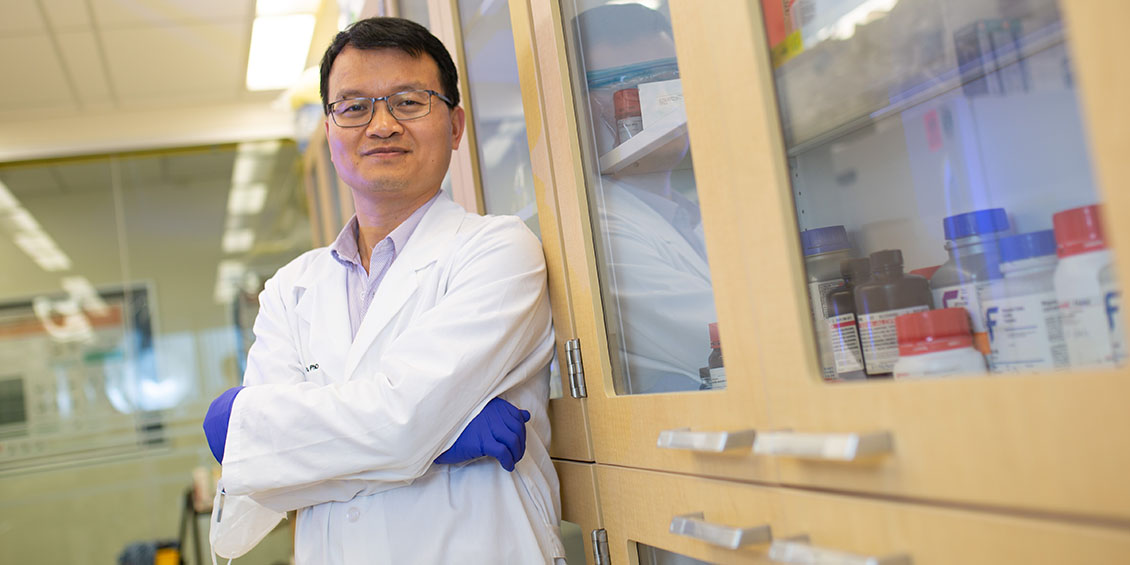Research News

Uncovering Cause of Underdeveloped Hearts
UHCOP's Wu Awarded $300K American Heart Association Grant to Investigate Suspect Gene in Congenital Heart Defect
July 18 – University of Houston College of Pharmacy’s Mingfu Wu, Ph.D., associate professor of pharmacology, has been awarded a three-year, $300,000 Transformational Project Award from the American Heart Association (AHA) to fund his research on Hypoplastic Left Heart Syndrome (HLHS), a life-threatening congenital heart disease in which the left side of the organ is underdeveloped.
HLHS results in a smaller or absence of the left ventricle and abnormal valves. According to the Centers for Disease Control and Prevention (CDC), about 1 in 3,955 babies are born with HLHS each year in the U.S., accounting for about 2% to 3% of all congenital heart diseases/defects. Detected during pregnancy, at birth or soon thereafter, HLHS may be managed with surgery and medication to improve blood flow. However, patients are at risk of complications such as lung, liver and gastrointestinal diseases, neurodevelopmental issues, and heart failure and arrythmias.
Although the underlying causes of HLHS aren't known, recent research has identified a specific gene called myelin regulatory factor (MYRF) has been linked to embryonic cardiac defects. Through DNA sequencing studies, MYRF gene variants have been identified in multiple HLHS patients – a possible clue in the underlying cause in why heart valves and left ventricle fail to form correctly, Wu said.
"This gene is like an instruction manual for the heart," Wu said.
Wu is intrigued by how MYRF acts on the heart’s formation and function.
"I am especially interested in how MYRF affects two things: the making of valves inside the heart, like ensuring doors open and close properly; and how it ensures the heart's walls is shaped properly to pump blood effectively," Wu said.
By understanding the gene’s role in cardiac development, Wu hopes to find new ways to treat or prevent HLHS in babies.
"We hope we can deliver a correct gene to the fetus while still in the womb," Wu said.
Aimed to help researchers lead to critical discoveries or major advancements in the fields of cardiovascular and cerebrovascular research, the AHA grant program funds innovative, high-impact projects that build on strong preliminary data.